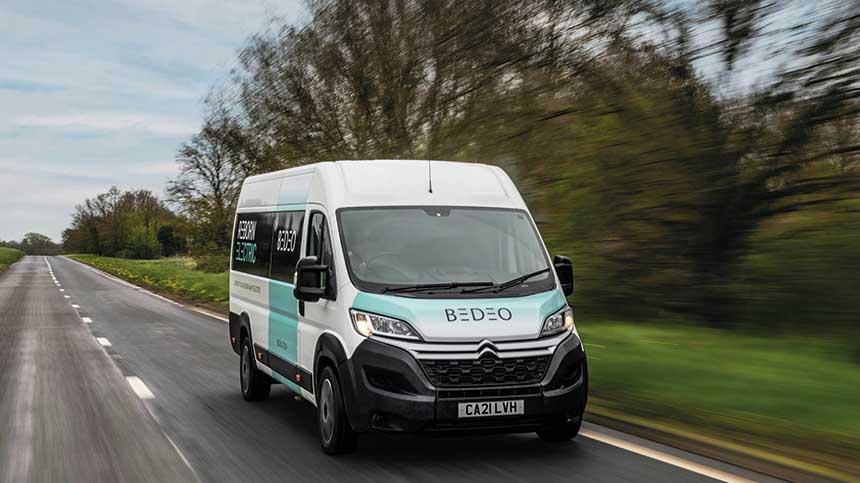BEDEO calls for rectrofitting solution to LCV emissions

New research has found that LCV emissions account for 40% of all emissions generated by the logistics sector.
This is according to a report by McKinsey & Company.
Now, electric mobility leader BEDEO is urging governments and policymakers to support the industry in rectrofitting large vans, warning that failure to do so could mean missing a critical opportunity to reduce emissions.
It says high up front costs are significant barriers to buying brand-new electric LCVs, but it is able to retrofit an electric powertrain through its Reborn Electric programme – providing a cost-effective that also reduces overall CO2 emissions.
Osman Boyner, founder and CEO of BEDEO said: “No longer can we hide from the facts – LCVs are the single biggest polluters in the logistics industry. Our reliance on them isn’t going to reduce, and for good reason – LCVs are the backbone of the logistics industry – however, we need to rethink the way we power them [mainly with fossil fuels] and offer cost-effective electric versions now, and not just wait until they’re banned – that could be in 2030, 2035 or even beyond that.”
LCV emissions
He continued: “Our solution is to offer retrofitting. Retrofitting electric powertrains is a pragmatic solution to achieve a faster LCV transition to net zero. We have worked tirelessly to ensure that our retrofit solution ensures a lower TCO compared to investing in entirely new fleets, with operators able to realise savings on fuel and maintenance while also allowing for operational continuity – retrofitting can be accomplished with minimal downtime, ensuring that fleet operations remain uninterrupted.
“The UK van industry truly is at a pivotal moment. Without swift action and the adoption of innovative solutions like our in-wheel motor technology, we risk falling short of our impending net-zero goals.
“We urge the government to recognise and support these alternative electrification pathways, which not only make economic sense – for both the country and fleet managers everywhere – but are crucial for achieving our environmental commitments.”








